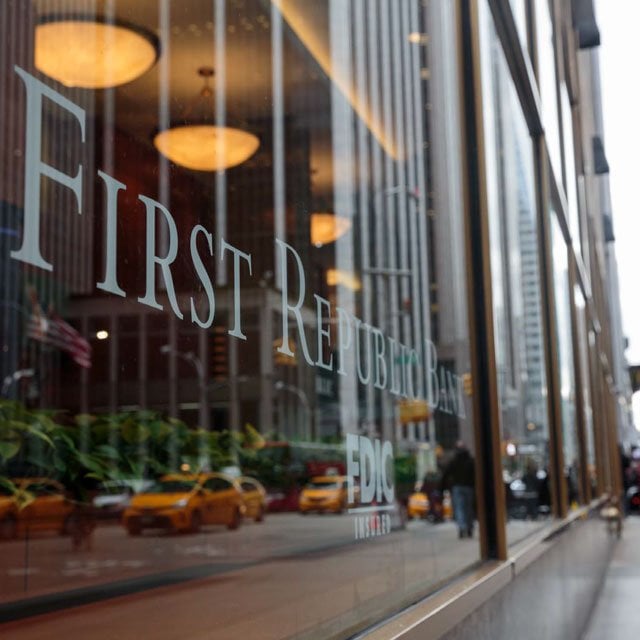Bank-Rescue Doubts Persist as First Republic Shares Plummet

Investors are questioning whether the U.S. government’s hastily assembled weekend rescue plan for the banking system will prevent more fallout from the collapse of SVB Financial Group’s Silicon Valley Bank.
U.S. bank stocks slid, including those of San Francisco-based First Republic Bank, which tried to reassure investors with a statement about the strength of its liquidity. The company’s shares plunged 62% in early New York trading.
Among other regional banks, Phoenix-based Western Alliance Bancorp slumped 66%, and Beverly Hills, California-based PacWest Bancorp slid 45%.
Major lenders also took a hit. Wells Fargo & Co. was down 3.5%, Citigroup Inc. slipped 2.6% and Bank of America Corp. declined 3.7%.
The Federal Reserve, Federal Deposit Insurance Corp. and Treasury Department said Sunday they would create a funding program to make loans to banks, and the central bank relaxed terms for lending through its discount window.
Officials said depositors of Santa Clara, California-based SVB would have access to all of their money, whether insured by the FDIC or not.
While depositors won relief, SVB shareholders and certain unsecured debtholders won’t be protected under the agreement — a move by regulators that could apply to other banks that run aground.
The government’s containment measures don’t solve a key problem that helped bring down SVB and that some other banks still face: a mismatch in duration between assets and liabilities.
Adding to the concern for shareholders is the government’s inability so far to find a buyer for SVB. The bank’s parent, SVB Financial Group, said it’s exploring strategic alternatives for its investment-banking division as well as its venture capital and private credit fund platform.
“We believe systemic risk is lower with the Fed/FDIC/Treasury backstop, but the operating environment is set to become much tougher for banks,” Truist Securities analyst Brandon King said in a note to clients. “Regional and community banks are facing structurally lower profitability levels going forward.”





